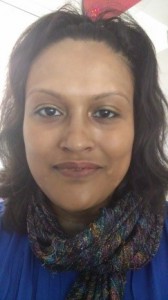28th April 2015 London, UK
Guest blog by Shahida Khan, Business and Human Rights Policy Officer, on business efficient flexible working
The FCO is a strong supporter of business efficient flexible working, and extends this right to all its employees. Flexible working takes many forms – compressed hours, flexible hours, job shares and remote working are a few of the more common examples. The Human Rights and Democracy Department (HRDD) is widely recognised as one part of the FCO that is leading the way in embracing these new ways of working. The benefits: more motivated, productive and happier staff, reduced stress and absenteeism. It can support our objective to deliver the right workforce with the right skills, while nurturing diversity across the organisation and boosting staff morale.
This week, I’m hosting a guest blog from a new overseas worker colleague, Shahida Khan, who is sharing her experiences after completing her first month with HRDD, working from Bangalore, India.
 Guest blog by Shahida Khan, Business and Human Rights (BHR) Policy Officer
Guest blog by Shahida Khan, Business and Human Rights (BHR) Policy Officer
My colleagues encouraged me to share these first impressions, on the grounds that – though blogs are supposed to be personal – my experiences had set them thinking about how HRDD worked now, and what we could do differently.
Our conversation stemmed from a departmental workshop after the last staff survey, which spawned several working groups, including a “Gang of Four on Staff Empowerment”, comprising of me, Rob Fenn and two other members of staff.
I’ve worked flexibly before – two days from home in my last job which was based in London. But this time its one step (or flight!) further in that I’m working remotely from Bangalore, where I’m accompanying my husband on his FCO posting. We moved here end of February, so there’s a lot happening at the moment with settling into a new home, country and job. Oh and not forgetting making sure my seven year old twin boys are equally happy in their new environment (both were very happy when the heavy baggage and all their toys arrived! It actually came the day before I started this job so great timing).
As soon as I heard we were going overseas I started the search for a role that was doable remotely as I really wanted to keep my own FCO career going. My previous job, in the Diversity and Inclusion Team in Human Resource Directorate, meant I’d come across many colleagues who were working fully remotely in the UK or overseas and it gave me the confidence to pitch to do the same. Based on my own experience I believe flexible working can be empowering – especially to give staff options to support balancing work with family/personal commitments. This is one of FCO’s strengths with high level support for enabling flexible working in many forms.
My new team is helping by being open and positive and also practically by ensuring I can dial-in to meetings (my thanks to them for sorting out the spider phone!) Also colleagues here at the British Deputy High Commission Bangalore (BDHC) have been very supportive. I work from the BDHC office on Thursdays – which enables me to access video conferencing equipment. It’s nice to be in the office one day a week and be able to have that face to face interaction. Also it means I’m building new relationships / networks in a different context – which I like.
My experience in this short time has reinforced in my mind the need to be positive about our differences and different work practices. And also to recognise the new opportunities and synergies that can present themselves (e.g. building new contacts/taking forward work in a different way). For me that means hopefully taking advantage of where I am and visiting some of the HRDD Programme Fund Projects that have been agreed for India and in the region. I’m looking forward to that! Also another of the “benefits of working differently” for me is the opportunity to build direct relationships with some of the key representatives working for major companies here in India on ethical issues. I’m already in touch with two very relevant work contacts and I hope to build on these “coincidences” so I can tap into the special insight they have on BHR issues and gain a better understanding on the real life experience of companies trying to do the right thing.
I’m also really keen to make sure that I find ways to get involved in departmental activities from here and that it’s not a case of “out of sight and out of mind…” To be honest you don’t know the value of something until it’s gone e.g. those tea point conversations / a quick hello when you see someone in the corridor. The challenge is getting comfortable using other comms channels to stay in contact and still be “visible”. It’s working out how best to engage when I’m not physically there with the rest of the team/dept in London. As a remote worker you can feel isolated – it’s just you in the “office!” Personally I don’t like “library silence” – I enjoy having chats and interaction. Instant messaging software and telephone calls help to facilitate this, helping me to keep connected with fellow HRDD colleagues and to replicate my own “queuing at the tea point moments” from here in Bangalore.